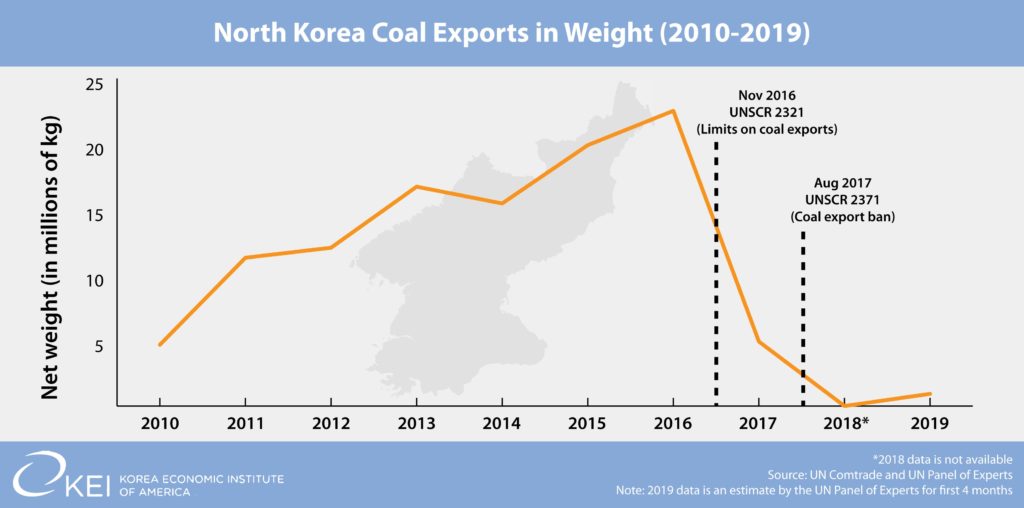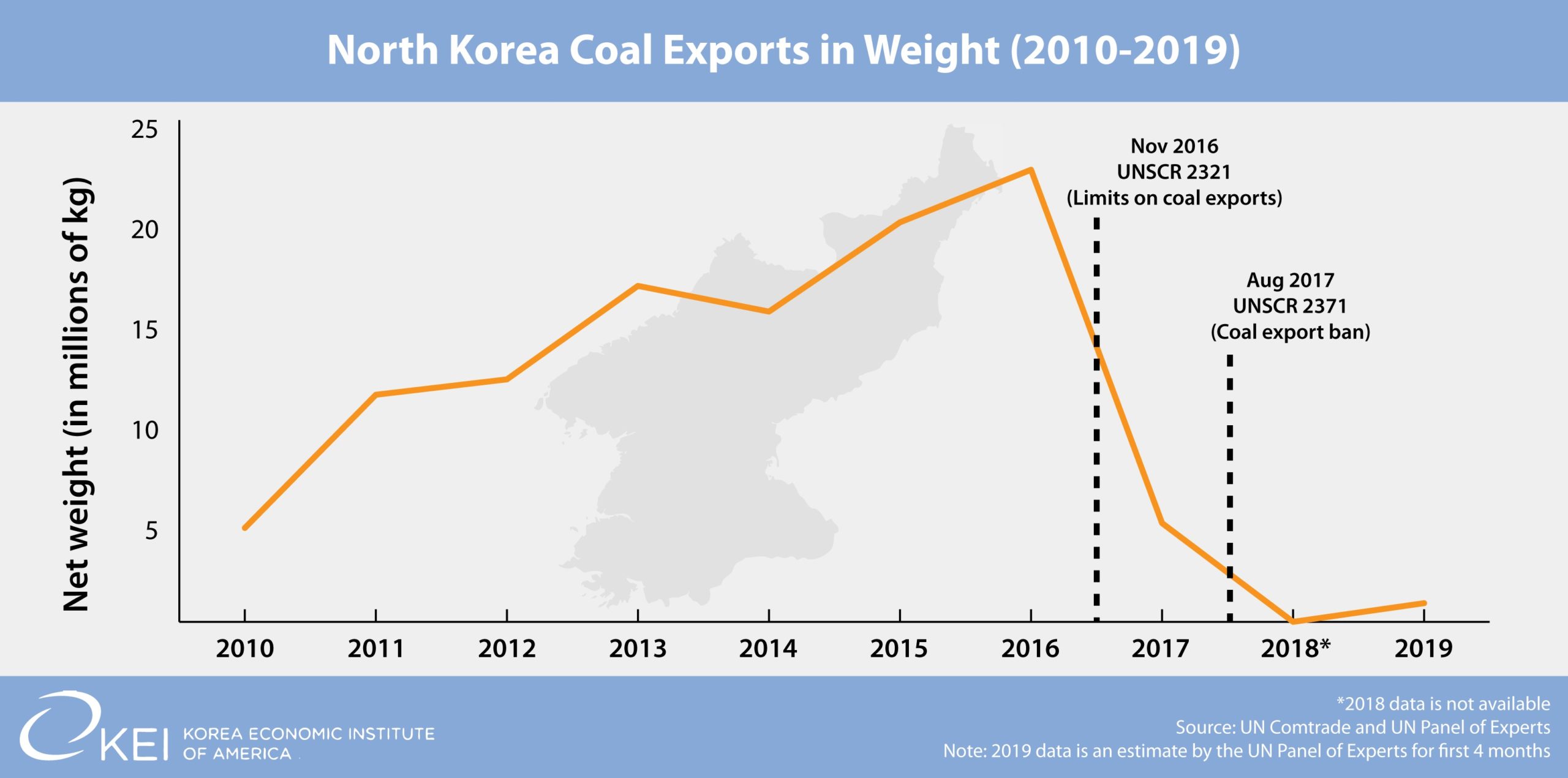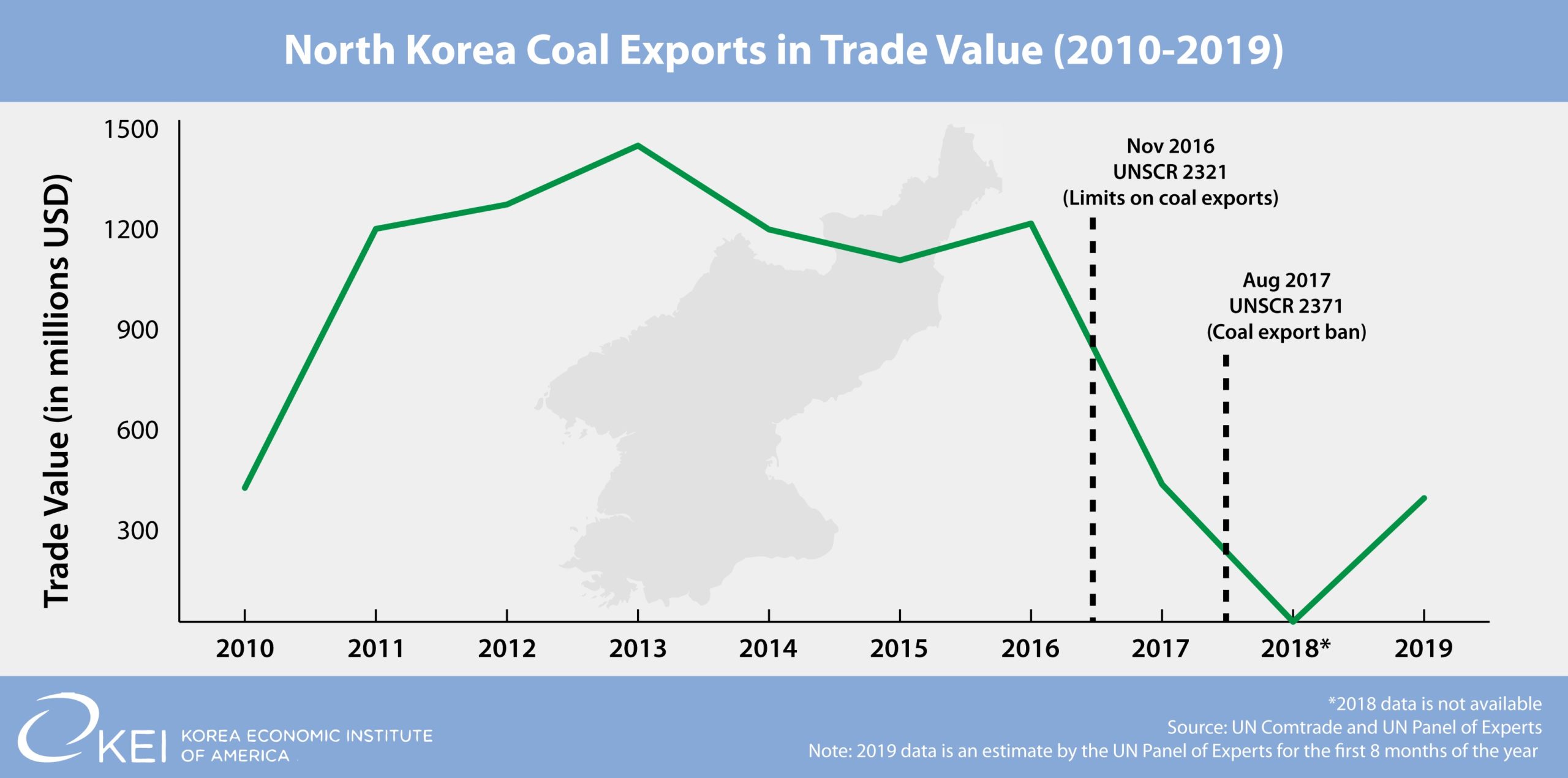The Peninsula
North Korean Coal Smuggling, Still Profitable

By Troy Stangarone
According to a recently leaked UN 1718 Committee report, North Korea exported 3.7 million metric tons of coal in the first eight months for 2019 despite UN sanctions prohibiting North Korean coal exports. Earning the regime $370 million, these exports help explain how Pyongyang has been able to finance its trade deficit. Moreover, it potentially disproves the widely-held assumption that North Korea’s smuggling activities are untenable in the long-term because of the added costs.
The UN estimates suggest that illicit exports of North Korean coal increased by nearly 300 percent by value and volume from May through August compared to the first four months of the year.

The UN has not released full year data, but if North Korean exports of coal in the four months of 2019 merely declined to the average of the prior eight months that would suggest that North Korea potentially earned an additional $185 million from coal exports for a potential total of $550 million for the full year. It would also suggest that North Korea may have exceeded the cap on value initially placed on Pyongyang’s coal exports in 2017 before the full ban was put in place.

The report values North Korean coal exports at approximately $100 a metric ton, which is in line with the value placed on illicit North Korean coal exports in the 1718 Committee’s previously released report which estimated that North Korea had exported 930,000 metric tons in the first four months of 2019.
Traditionally North Korea has earned less from its coal exports to China per metric ton than exporters such as Australia, which is China’s largest source of imported coal. At $100 per metric ton, however, it suggests that North Korea is not taking a significant discount on its coal exports from the sanctions.
Even prior to sanctions, North Korea received less per metric ton than countries such as Australia. In 2016, the last year before sanctions were placed on North Korean coal exports, Australian coal exports averaged $79 per metric ton while North Korean coal exports to China averaged a little under $53 per metric ton.
Full year trade data by commodity for 2019 is not yet publically available from China or Australia. However, in 2018, exports of Australian coal to China averaged $130 per metric ton. If 2019 prices are ultimately similar, that would suggest that dollar per metric ton spread between Australian coal and North Korean coal has largely remained the same, while the percentage price that North Korea receives relative to Australian coal has actually improved from 67 percent to 77 percent.
With UN sanction on a range of North Korean exports in addition to coal, there has been a significant decline in North Korean exports. In the case of China, North Korea’s largest trading partner, exports declined from $1.7 billion in 2017 to $215 million in 2019 as a wider range of sanctions were implemented, while imports only declined from $3.3 billion to $2.6 billion over the same period.
If confirmed, this would help explain how North Korea has been able to maintain a relatively high level of imports from China despite its official export earnings having declined so precipitously. One theory has been that North Korea was spending down its foreign reserves to cover its trade deficit with China. However, if UN estimates are correct, North Korea’s trade deficit can be partially explained by the revenue generated from Pyongyang’s illicit exports of coal exports.
Troy Stangarone is the Senior Director and Fellow at the Korea Economic Institute of America. The views expressed here are the author’s alone.
Graphics by Juni Kim, Senior Manager for Operations and Technology, Korea Economic Institute of America.
Photo from Kentucky Photo File’s photostream on flickr Creative Commons.
